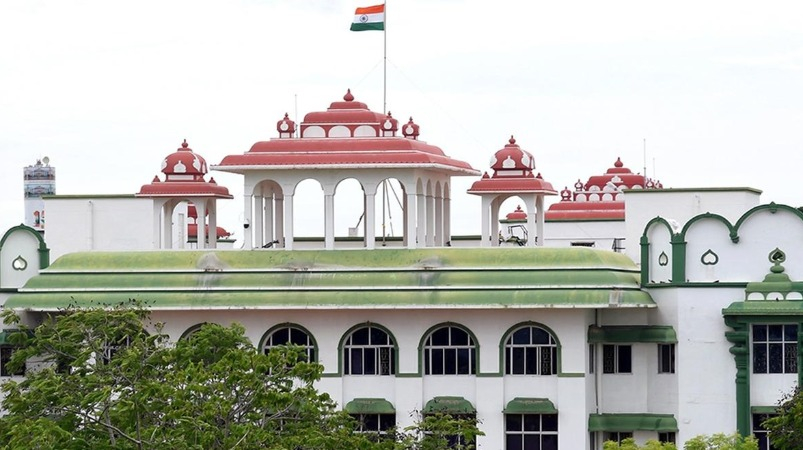As banks in Tamil Nadu shut shop due to strike, ATMs dry up, small industries hit
The two-day strike has been called to protest against the proposed privatisation of two state-owned lenders by the central government
Published: 15th March 2021 02:43 PM
As staff of nationalised banks stage a protest against privatisation of banks, the office of a public sector bank wears a deserted look in Chennai on Monday. (Express Photo | Debadutta Mallick)
By C Shivakumar
Express News Service
CHENNAI: Banking services in public sector banks across the state in the manual mode were disrupted as more than 60,000 bank employees from 160 branches joined the two-day strike to protest against the proposed privatisation of two state-owned lenders by the central government.
The closure has impacted many people as ATMs dried up in many branches on Sunday itself. With banking operations hit on Monday and Tuesday, transactions worth Rs 5,150 crore could be affected in Chennai, says CH Venkatachalam, general secretary, All India Bank Employees Association.
But online transactions have not been impacted due to the strike. R N Sekar, secretary, Chennai Customs Brokers Association (CCBA) told The New Indian Express that online transactions are going on. "The two-day strike is unlikely to have any significant impact as we expected," said Sekar. He said only those who are dependent on cheque and cash transactions are impacted.
Currently, most of the trading houses have moved to cashless transactions, he said. Meanwhile, ATMs, where filling of cash has been outsourced, continue to be active while those which have to be replenished by banks were hit. A bank employee told The New Indian Express that most of the ATMs in the state could be hit as they are being replenished by bank employees themselves. Banks were shut on Saturday and Sunday as both days were holidays for bank employees.
Regional chairman of Federation of Indian Exporters Organisation Israr Ahmed told The New Indian Express that the two-day bank strike will impact small and medium-sized enterprises more as most of them have yet to move to online mode while the bigger industries won't be hit that much. He said the strike would put a strain on the already affected exporters who are struggling due to the lockdown and second wave of Covid-19.
"Exports have been down. Last year, we were hoping that we will recover by March this year. But this has not happened due to the lockdown in the United States and the second wave of the pandemic striking us. Many of the exporters have closed shop as they could not continue," says Ahmed.
T V Hariharan, president of Chennai District Small Scale Industries Association, told The New Indian Express that the strike has impacted small scale industries who have yet to migrate to online mode and are dependent on cash and cheques to carry out their daily transactions. There are 1500 SMEs in Ekkaduthangal and they are hit as banks have been closed since Saturday.
"Usually, we pay salaries to daily wagers on Saturday. Since there have been no bank transactions, we are unable to pay them on Monday and Tuesday," said Hariharan. To a query on why the SMEs don't move to online mode, he said most of the owners are still dependent on others for online transactions as they are educated only up to Class 8 or Class 12.
G V Manimaran, general secretary All India Nationalised Banks Officers’ Federation (AINBOF), and CH Venkatachalam, general secretary, All India Bank Employees Association, said the strike has been called to oppose the central government's move to privatise public sector banks which was announced in the Budget 2021.
Manimaran said privatisation will have a negative impact on all the good work being done by public sector banks since they put socio economic upliftment over and above profitability. While public sector banks cater to people from various strata of society, the same would not be the case with private entities. The benefits of privatisation will accrue to the few corporate and private entities whereas the majority of the country’s populace may be left out of mainstream banking, he claimed.
"If banks are privatised, employment opportunities will be reduced for the educated youth and jobs will be on contract basis instead of permanent jobs. Job security will be affected. Reservation policy will not apply to private banks and hence reserved category employees will be affected. Hence privatisation will only benefit the rich corporate houses who will buy these banks. Already many corporate houses are defaulters of huge bank loans and there is a risk of such defaulters becoming owners of these banks," said Venkatachalam.

No comments:
Post a Comment